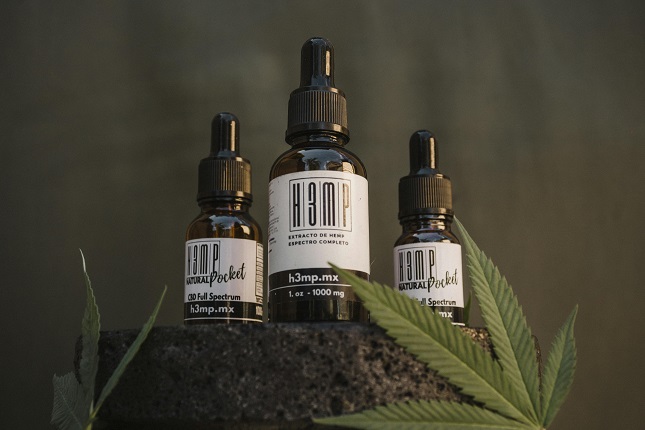From being on niche shelves to becoming mainstream, CBD now stands proud at the center of medical innovations. Once, it was overshadowed by its euphoric cousin THC. Today, CBD based wellness is the catalyst that has been reshaping the pharmaceutical market.
In 2018, Epidiolex became the first cannabis-derived medicine (FDA-approved) for epilepsy.
What’s fueling the interest
CBD (cannabidiol) is a non-euphoric compound. Legal CBD is extracted from the hemp plant. When consumed, it works with the body’s endocannabinoid system. This is your body’s system that regulates mood, sleep, appetite, memory, and even pain response.
Researchers first found interest in CBD after trials on rare forms of childhood epilepsy. Conditions such as Dravet syndrome and Lennox-Gastaut syndrome are known to often resist any traditional forms of therapy. Effective administration revealed a reduced seizure frequency and, in some cases, even stopped them completely. This was a breakthrough. And today’s trials extend far beyond epilepsy.
Researchers are studying CBD for anxiety, chronic pain, multiple sclerosis, Parkinson’s disease, and even cancer-related symptoms. Trial treatments on migraine showed that a THC-CBD blend outperformed a placebo, with the benefits lasting up to 48 hours.
A huge wave of evidence shows exactly why CBD is becoming more than a wellness trend. CBD is shaping a new category of wellness with measurable outcomes.
CBD in everyday healthcare
Consumer wellness
Go up to any local dispensary near you and you will find stockpiles of CBD infused drinks, flowers, vapes, edibles, supplements, and a whole lot more. The variety is frankly ridiculous.
After the 2018 Farm Bill made it legal in the US, CBD has fueled an industry projected to hit $3.04 billion by the end of 2025.
The popularity of flowers
CBG flower has become especially popular. With Delta 9 THC levels well under the 0.3% mark, these flowers like the Mochi strain and others, are loved for their iconic calming effects without the added intoxication.
Smoke it, vape it, or even infuse it into oils and edibles. The super quick absorption through inhalation makes it a super popular choice for stress relief and relaxation.
The crossover market
The crossover between pharmaceuticals and wellness creates a unique market here. Users see CBD as both medicine and lifestyle. And while regulations still lag, the demand does not seem to die anytime soon. You can even see strains like the Mochi strain there mentioned in wellness blogs, that mix recreational and therapeutic benefits.
What does evidence from research say
The science backs much of this. Studies have shown CBD to lower anxiety, improve sleep, and reduce inflammation. Animal trials even show CBD’s role in reducing cravings for addictive substances like nicotine.
Note: FDA has not approved CBD or its derived products for these uses. However, early findings continue to fuel public interest.
CBD in the pharmaceutical market
This one works on proof and not hype. The FDA required pharmaceutical grade CBD to meet exact purity and dosing standards.
For example, in the case of epilepsy treatments, one study administered patients with exactly 2.5 mg/kg twice daily, titrating up to 20 mg/kg. Such precise dosing requirements when conducting clinical trials and studies help companies make prescription CBD medicines.
These companies are not only focused on epilepsy, though. Sativex is a CBD-THC based spray approved in many countries outside the US, which is used to treat muscle spasticity in multiple sclerosis. Researchers in the US are exploring CBD based drugs for anxiety disorders and inflammation-driven diseases.
Oils and tinctures are just the tip of the iceberg. Pharmaceutical grade capsules, sprays, and even topical gels are entering clinical pipelines. As companies continue to file patents, CBD’s role in drug innovation is becoming even more central than ever before.
Industry partnerships and further exploration
- Big Pharma acquisitions: Jazz Pharmaceuticals bought GW Pharmaceuticals (makers of Epidiolex) at $7 billion. This was one of the largest cannabinoid-focused acquisitions completed to date.
- Patents and drug combos: Companies are filing patents that combine the benefits of CBD with existing drugs. One major focus is pairing CBD with opioids to lower opioid dosage needs while still preserving pain relief, reducing dependency risks.
- Consumer focused wellness products: Beverage companies are trialling CBD-infused beverages, as skincare companies are promoting CBD cream and serums as anti-inflammatories.
- Dual growth path: This split between pharmaceutical applications and lifestyle products sets CBD apart from other plant-derived compounds.
Concerns regarding safety and regulation challenges
Still, safety of these products remains a primary concern. CBD interacts with liver enzymes that can affect metabolism with blood thinners and antiepileptics. There are also reports of high dosing being associated with increased liver enzymes and would require monitoring when clinically used.
The next challenge is the product purity. Studies show that many over-the-counter CBD products are mislabeled. Some contain far less CBD than what they advertise, while others might have unsafe levels of delta 9 or heavy metals. So Certificates of analysis (COAs) from independent labs still remain the gold standard for customer trust.
Additionally, regulations will vary around the world. The EU has legal allowances for hemp-derived CBD, but pharmaceutical approvals are country-specific. In Canada, CBD is regulated under the cannabis laws, while the US FDA still classifies non-prescription CBD as a supplement (not a drug).
Where is the industry headed?
The future looks bright. Stronger research and better integration with healthcare systems is making all of this possible. Current trials focus on neurodegenerative conditions like Alzheimer’s and Parkinson’s. Others are testing CBD’s role in psychiatric care, including PTSD. If the results remain positive, CBD may very well become a first-line therapy for conditions beyond epilepsy within the next decade. And in the consumer market, CBD is set to become as common as your regular vitamin supplements.
Conclusion
CBD has transformed an entire industry. This obscure compound has led clinical trials, research, and a whole lot more to create an industry out of nothing. Companies are investing billions, while the demand from consumers shows no signs of slowing down.
Yet some challenges do remain. Regulations and purity remain a major concern. But with the right products from reputable brands, you will be sure to have the very best.
What started as a plant extract is now changing medicine, wellness and global healthcare.









































